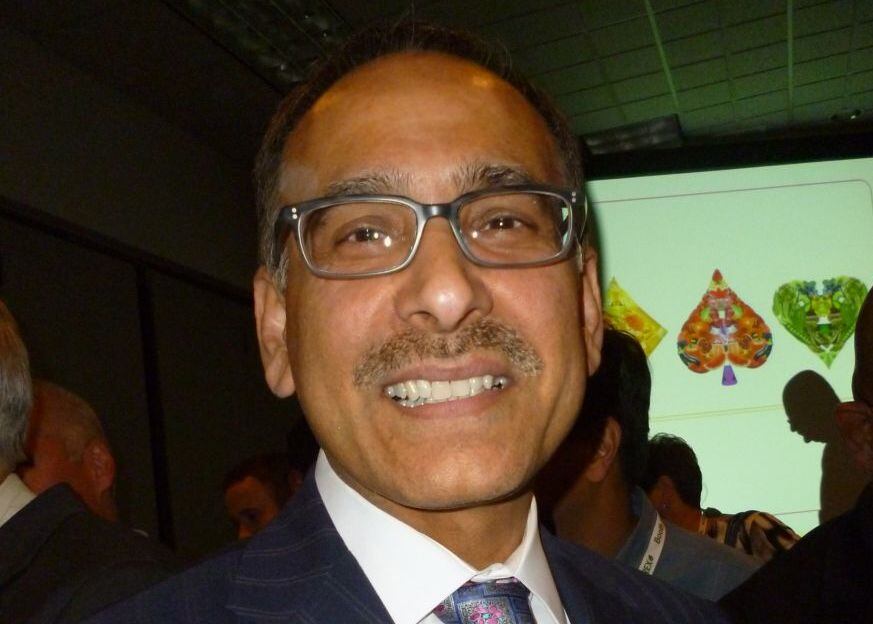In a provocative keynote speech delivered at the annual Campden BRI Day in the UK last week, Maple Leaf CEO Michael McCain echoed comments made in recent public appearances by R&D bosses at PepsiCo and Nestle by arguing that we will not feed 9bn people by 2050 with organic agriculture.
We need to be extraordinarily cautious about food strategies that have become something of the cult of an urban elite
In the speech - entitled ‘Towards a global food strategy - from discourse to dialogue’ - he said: “We need to be extraordinarily cautious about food strategies that have become something of the cult of an urban elite, but actually work against finding solutions to this global food crisis.
“For example, things like ‘locavore diets’ and ‘organics’ are simply not scalable and would exacerbate an already critical gap in affordability, availability and sustainability.
“This group of people appears to believe they are doing the right thing, which is admirable, but they are immune to the effects or not properly informed of the consequences. A global food strategy must meet the needs of the many, not the affluent few.”
And thanks to the influence exerted over food culture and policy by these urban elites, government policy is being pushed “in directions that are purely related to personal preference and are unrelated to solving the impending food crisis”, he argued.
It’s a morally unacceptable position to take on the basis of unsubstantiated suspicions and fears
While we will likely need “technologies and innovations not yet invented” to meet production needs in the future, he predicted, “we certainly need to be using the technologies that we do have at our disposal, starting with genetic modification.”

And aside from developing new drought resistant crops,we must increase the productivity of land already in production he added.
“Opponents of GM foods are going to have to accept that a complete ban on usage will result in the starvation of millions and the impoverishment of millions more.
“They are also going to have to accept that it is crunch time, decision time, and they have no hard evidence to justify a ban. It’s a morally unacceptable position to take on the basis of unsubstantiated suspicions and fears.”
Crucially, the problem of feeding the world’s growing population cannot be solved with the food industry “in pitched battle” with the environmental movement or other stakeholders, he claimed.
Biotech crops just part of the toolkit, not a panacea
Clearly, biotech crops are not a panacea, however.
In sub Saharan Africa, he pointed out, there are “local governance issues that could make a difference, notably doing more to empower women”, along with using “improved seeds, increasing the amount of cropland irrigated, increased use of modern inputs, availability of credit, and access to markets, good extension advice, and adequate returns through undistorted prices for inputs and outputs”.
Biofuels: In exchange for a marginal environmental benefit, we have threatened the affordability of food for millions
Tackling waste is also critical, he added, observing that 20% of fish biomass caught is thrown overboard.
He also quoted the UK’s Institute of Mechanical Engineers, which says that “due to poor practices in harvesting, storage and transportation, as well as market and consumer wastage, it is estimated that 30-50% of all food produced never reaches a human stomach”.

Meanwhile, almost 2bn tons of produce are thrown out every year “because of the way it looks”, he added. “These kinds of practices need to end.”
As for biofuels, he said, western governments must stop supporting grain-based fuels (from sugar cane, corn and soybeans). “In exchange for very marginal environmental benefit, we have threatened the affordability of food for millions.”
We face unprecedented levels of poverty and geopolitical instability
In one sense, there has always been a global food crisis, in that millions go hungry in a world that produces enough food to feed everybody, he said.
“What is new is that an exploding, increasingly urbanized population threatens to extend that tragedy to additional millions, and drive up food costs for billions more, if the food industry cannot meet an enormous production challenge.”
He added: “One would have to be willfully blind not to see the inevitable and ongoing conflation of food shortages, mismatches of food supply with need, environmental degradation, and dramatically rising food prices that will, if unresolved, lead to unprecedented levels of poverty and geopolitical instability”
This discussion is contained to the policy elites at think tanks and NGOs

In short, the industry is facing a crisis of a “scope that threatens to dwarf our imagination to resolve”, he said.
“We have to feed two billion people more than we are feeding now, with a diet likely more heavily reliant on meat and other animal proteins, and do so without the easy solutions we have relied on to increase food production in the past - more land and water, rising yields and cheap energy.”
So why isn’t this impending crisis topping the news agenda?
Chiefly because the average consumer - in the developed world at least - has no sense of the scale of the problem, he said.
“This discussion is contained to the policy elites at think tanks and NGOs, but we need ordinary citizens to get more engaged and to be more informed about the choices we face.”
Click here to read what PepsiCo chief scientific officer Dr Mehmood Khan thinks about the future of the global food supply.
And click here to get Nestle’s take on biotech crops
UK-based Campden BRI is a membership-based organisation carrying out research and development for the food and drinks industry worldwide.
Maple Leaf Foods Inc has three divisions: Meat Products, which includes value-added fresh meats, chilled and ready to cook products, chilled ready to serve products and packaged meats; Bakery Products, which includes fresh bread, rolls and ethnic breads, bagels, croissants and morning goods, premium artisan bakery products, frozen par-baked and fully-baked goods and fresh pasta and sauces; and Agribusiness Products, which includes rendering, biodiesel production and hog production operations.
